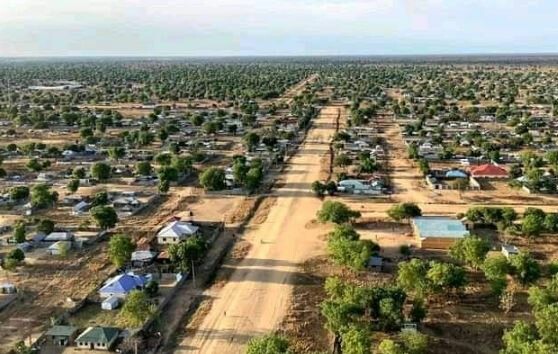Civil society activists and residents of the Jonglei State capital, Bor, have expressed dismay over the decision of the mayor to rename key roads in the town after the governor of the Bank of South Sudan and the state governor.
Bor Municipal Council Mayor John Tiopich Achiek on Saturday issued two provisional orders dated 10 February 2024 renaming the Pakwau Highway to Dr. James Alic Garang Road, in honor of the serving Bank of South Sudan Governor. Another order renamed Machuor Highway which connects Bor Town Malual-chaat Military Barracks to Denay Jock Chagor Road, in honor of the sitting governor of Jonglei State.
A Bor Town dweller, Daniel Majok, said the mayor’s decision was uncalled for and premature, arguing that many other deserving personalities who contributed to the liberation of and peace in the country have not been honored.
“We have several heroes within Jonglei State and he should have named the roads after the likes of John Garang who has no road named after him. We also have Abel Alier who is also a son of this land and a liberator who contributed to the struggle for South Sudan,” he charged. “If the mayor’s intentions were genuine, he should have at the above names instead of the people who are coming here for the first time and who do not have any meaning to the people of Jonglei State.”
Majok urged the mayor to repeal his orders, describing them as disrespectful to liberators, including sitting President Salva Kiir Mayardit.
Some activists and civil society groups have also weighed in and disapproved of Mayor Tiopich’s decision, underscoring that the mayor should have first sat down with the Bor Municipal Council to decide on the proper naming of the town’s streets.
Bol Deng Bol, the Executive Director of INTREPID South Sudan (ISS), called on the municipal council to summon the mayor to explain his unilateral decisions.
“It should have been done in the right way and not the way it has been done. The procedure is questionable,” he stated. “I would suggest that the municipal council, those councilors who are responsible for all the decisions and the bylaws, summon the mayor to explain how he arrived at such a decision so that they then see a way forward on how to name roads.”
However, some Bor inhabitants welcomed the mayor’s decision, underscoring that it will motivate the state governor and the Central Bank Governor to support the development of the town and improve the quality of the roads.
“It is not a bad idea to name a road after the Governor of the Central Bank because it is always important to recognize some people in government,” a resident who identified himself only Ajak said. “If he heard that the road has been named after him and it is in bad shape, he might help repair the road.”
Bor Mayor Tiopich defended his move, saying he intends to attract development and investments to Bor town by honoring the officials who have contributed to the economic and political stability of the country.
“The road from Pakwau to the prison is a bush but when I became the mayor and I saw that the Central Bank was building that place which was a bush, I decided to clear it,” he explained. “When the Central Bank Governor came, I told him that since he was constructing the bank, I wanted him to also construct the road and that I would name it after him. I was doing this in good faith because I want to attract development to the town.”
The mayor contends that he has the authority to name and rename roads as per the Local Government Act and called on residents to support his efforts to transform Bor Town into a modern city.




